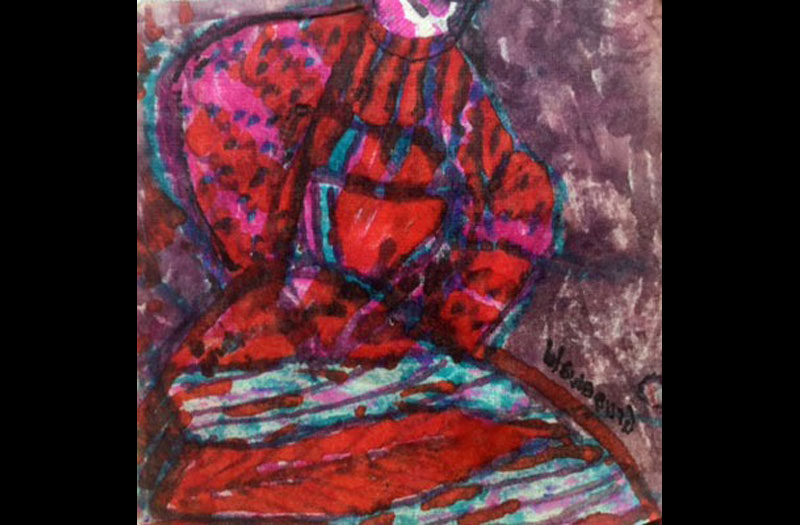To compare Donald Trump to Viktor Komarovsky does a disservice to Komarovsky. Trump lacks Komarovsky’s best qualities and embodies the worst. However the comparison is useful in that it explains Trump’s success and the dangers that may lie ahead for us and for him.
Komarovsky is the main antagonist in Boris Pasternak’s novel Dr. Zhivago. Zhivago was made into a movie (twice) and a Broadway play so you are likely to know the story. Time Magazine called Zhivago an “historical novel of Russia’s terrible years.” The novel has been described as “an epic romance set against the backdrop of the Russian Revolution.
I’ve been interested in Pasternak’s Komarovsky from the first time I encountered him. He’s a classic chameleon able to take any side and maneuver in different political atmospheres. He’s a successful social climber. He’s unhindered by any political ideals of his own. He’s a perfect collaborator with whomever is in power at the moment. But he has a moral compass, weak as it may be. Komarovsky is an operator who is endlessly adaptable. He goes from aristocrat to high ranking government official and always lands on his feet whatever the situation.
Such a man can be both useful and dangerous. At one point in the PBS series Komarovsky tells Lara whom he wants to seduce: “There are two kinds of men, and Antipov (Lara’s fiancé) is the first kind. He is pure. He’s the kind of man the world pretends to look up to, and in fact despises. He’s the kind of man that breeds unhappiness particularly in women.” Komarovsky contrasts this with the second kind of man, which he insists he is “not pure, but alive.”
Komarovsky underestimates himself. He may be more alive than Antipov but he does have limits. He may not be pure but he has a heart. He sometimes uses his power to help others even though he’s sleazy and manipulative and tends to act in his own self interest most of the time.
Yuri Zhivago, Pasternak’s protagonist, has the best qualities of each type of man. He despises both Antipov and Komarovsky yet he shares some characteristics with them. He has both ideas and ideals, he knows life and how to live, he is simultaneously the doctor and the poet.
What makes Pasternak’s novel great is that it is not a political book as Pasternak himself said:
“Do people buy Doctor Zhivago because it is a good book or only because they think it is anti-Communist?,” he asked … “No one has understood Dr. Zhivago [the character]. He is a literary victim of the cold war. Every country, whether Communist or not communist, has its quota of Dr. Zhivagos. Read it again and try to see it that way.”
In the divided America of today we too often view each other strictly in political terms. One thing Pasternak tells us in his novel is where such divisiveness leads. History repeats itself in a never ending story. Those in power knowingly or not oppress those beneath them to the point that they rise up. Then the newly powerful inflict their own extreme social, political, or religious dogma and the cycle repeats. Who always suffers? Ordinary people who just want to get on with their lives.
Pasternak’s novel is sadly prophetic of our times as a new set of ideologues seeks to mold America to their own imagined utopia. It takes a Komarovsky to navigate the sea change that comes when the ideologues take over, a Komarovsky with the wisdom in Pasternak’s novel. Not pure but alive and not just alive but awake.
“If, in a bad dream, we had seen all the horrors in store for us after the war, we should not have been sorry to see Stalin fall, together with Hitler. Then, an end to the war in favor of our allies, civilized countries with democratic traditions, would have meant a hundred times less suffering for our people than that which Stalin again inflicted on it after his victory.” Boris Pasternak
Komarovsky advises Zhivago to give up his individuality and fit in like everyone else. It is after all a technique that has served Komarovsky well. Fortunately Zhivago has principles that he lives by and he can’t shed them like a snake sheds its skin. Deep inside Komarovsky has a weaker version of these same principles. That’s why he ends up a sad and lonely man in spite of his apparent achievements. Dr. Zhivago is about far more than politics. It’s about love and faith and conscience and values and suffering. But it’s also about politics and very relevant to what’s happening in the “civilized and democratic” countries today. Komarovsky teaches a lesson we should all take to heart.


Astute analysis. Bravo!
Thanks. I hope we’re not eating turkey for four years straight.